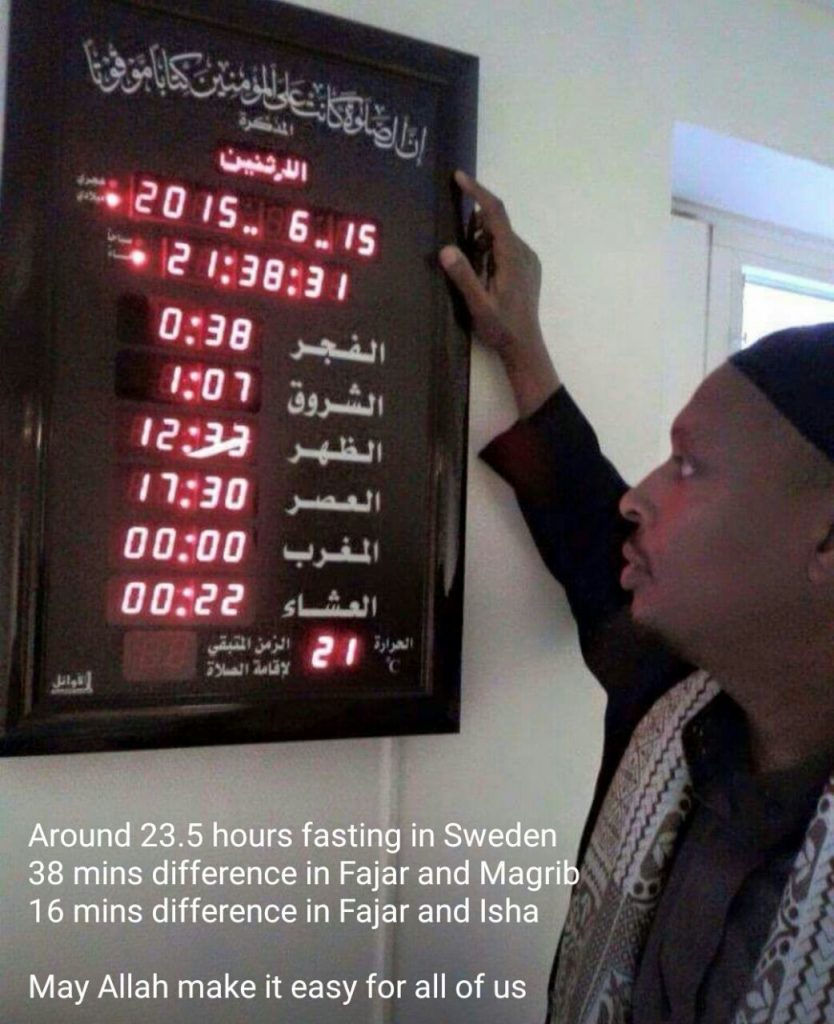In the region of the earth above the Arctic Circle called ‘the land of the midnight sun,’ the sun does not rise for several months in winter or set for several months in summer. In Finland, the sun stays above the horizon for seventy days at a stretch. What are Muslims in such regions to do if Ramadan occurs during one of these summer periods?
Most importantly spiritual life in Islam does not preclude the practical, nor does Islam sanction hermits and self-flagellation. Realistically, therefore, how does a person who fasts 23 hours a day and sleeps almost none remain healthy and function effectively as a soldier, a doctor, a laborer, a parent, or a student?
According to some mullahs midnight sun is a myth and there is no escape from fasting! Yes the summer Ramadan is of long hours but people are compensated for this by extremely short fasts during winters! According to them with proper dedication anything can be achieved.
But this is the thinking of a rigid mullah yet the question is what does Islamic law say and is it flexible?
In a hadith by Abu Dawud, the Prophet’s (PBUH) companion Safwan (RA) worked late hours, so he was unable to wake up for Fajr. The Prophet (PBUH) instructed him to pray Fajr as soon as he awoke instead. This hadith indicates that Islam is adaptable to exceptional circumstances.
Fasting is a means of cleansing the body, like spring cleaning; the intention is not to make the one fasting ill. It is clearly indicated when the fast must commence, as well as when it should end, and in the Arabian Peninsula, where the Holy Quran was revealed, these timings were reasonable. For those of us who arrived later and spread around the world, we were expected to carry the principles with us, but leave the peninsula where it stood.


